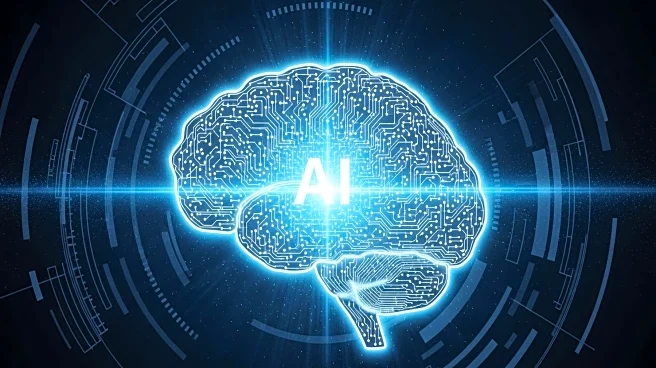What is the story about?
What's Happening?
A recent study has demonstrated that OpenAI's GPT-4 performs comparably to human examiners in ranking open-text answers. The research utilized metrics such as Quadratic Weighted Kappa and Kendall’s W to assess inter-rater reliability (IRR) between human examiners and GPT-4. The findings revealed that GPT-4's IRR values were similar to those of human pairs, indicating that the AI model can effectively rank answers with a level of agreement akin to human examiners. However, the study also noted a slight drop in IRR for point assessments, where GPT-4 showed greater tolerance in scoring compared to human examiners. This suggests that while GPT-4 is proficient in ranking tasks, it may exhibit biases in point assessments, particularly favoring longer answers.
Why It's Important?
The study's findings are significant as they highlight the potential of AI models like GPT-4 to assist in educational settings, particularly in tasks that require ranking of open-text answers. This could lead to increased efficiency and consistency in grading, reducing the workload on human examiners. However, the observed bias in point assessments raises concerns about the reliability of AI in scoring tasks, which could impact the fairness and accuracy of evaluations. Understanding these biases is crucial for developing strategies to mitigate them, ensuring that AI tools can be effectively integrated into educational systems without compromising assessment quality.
What's Next?
Further research is needed to explore methods to improve GPT-4's performance in point assessments, potentially through targeted prompting strategies or adjustments in its training data. Educational institutions may consider pilot programs to test the integration of AI in grading systems, while monitoring for biases and discrepancies. Additionally, ongoing dialogue between AI developers and educators will be essential to address ethical considerations and ensure that AI tools are used responsibly in academic environments.
Beyond the Headlines
The study raises broader questions about the role of AI in education and the potential for AI models to influence grading standards. As AI becomes more prevalent, there is a need to examine its impact on educational equity and the potential for AI-generated content to skew assessments. This underscores the importance of developing robust guidelines and ethical frameworks for AI use in education.














